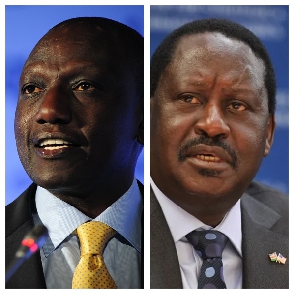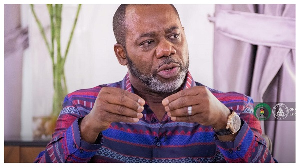A surprise truce between Kenya’s President William Ruto and opposition leader Raila Odinga last week has helped defuse the political tension that had built up in the country after two weeks of mass protests called by the opposition to push for a lower cost of living and electoral justice.
Ruto and Odinga, whose rivalry in last year’s disputed presidential election narrowly won by the latter spilled over to the streets in the past two weeks, separately announced last Sunday they had agreed to bipartisan negotiations through Parliament to address the opposition’s grievances.
As a consequence of the political ceasefire, the opposition called off further protests planned for this week while the chief prosecutor has withdrawn court charges against six opposition leaders arrested during the recent demonstrations.
The truce has also reduced the anxiety over possible violence and economic shutdowns in Nairobi and western Kenyan towns where the opposition enjoys a huge following.
The decision by Ruto and Odinga to pursue a negotiated settlement of their political differences has won them praise from the international community and the local clergy who had earlier expressed concerns that the demonstrations and a heavy-handed response by the police could plunge the country into widespread violence.
On Thursday, the opposition Azimio One Kenya Alliance coalition named its seven negotiators from the Senate and the National Assembly during a parliamentary group meeting while the government side is expected to unveil its team next Tuesday, setting the stage for the talks to begin.
Rhetoric by hardliners
But clashing views over the terms of engagement, toxic rhetoric by hardliners and distrust of Parliament by the opposition might yet rock or torpedo the negotiations boat.
Both Ruto and Odinga have set the tone for possibly ill-tempered talks in their recent public statements giving different versions of the scope of the negotiations agreed during behind-the-scenes discussions involving their two sets of emissaries.
While the President appeared to suggest that only the procedure of reconstituting the electoral commission will be on the negotiations table, the opposition leader maintains the list is longer.
The opposition coalition’s parliamentary group meeting on Thursday came up with up to 10 demands, including measures to bring down the cost of living, a forensic audit of the electoral commission’s electronic results transmission and storage systems, reinstatement of four former commissioners forced to resign or fired after they questioned the validity of last year’s presidential election results, comprehensive electoral reforms and tighter rules to enforce political party discipline.
Shifting loyalties
For their part, the President’s hawkish allies, including the House Majority leaders in the Senate and the National Assembly, have resumed their anti-Odinga rhetoric in recent days and vowed to reject most of the opposition’s proposals.
They are particularly opposed to discussions around a forensic audit of the electoral commission’s servers, which they see as a trap set by Mr. Odinga to help amplify his claims that last year’s election was rigged in favour of Mr. Ruto.
The Supreme Court last September upheld Ruto’s victory after hearing a petition by his main rival.
But the 78-year-old opposition leader, who lost his fifth presidential bid by a narrow margin, has in recent months reopened public debate about the outcome of the election, citing a contested whistle-blower dossier showing he won.
Although he has publicly backed the bipartisan process, he retains reservations about the ability of Parliament – which is largely controlled by the Executive after a number of opposition MPs shifted loyalties – to shepherd the reforms they want.
His warning of resumption of protests if they don’t deem the negotiations meaningful suggests that Kenyans may be no much longer at ease.
Africa News of Sunday, 9 April 2023
Source: theeastafrican.co.ke

















